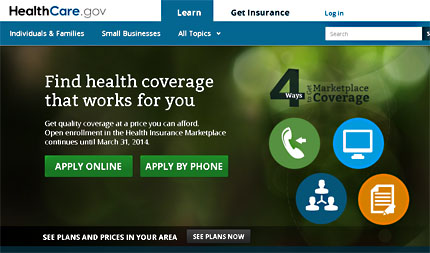Like most human beings, I love it when I turn out to be right. Or even when someone provides evidence that I might be right. So naturally I’m thrilled that a pair of researchers have confirmed my horseback estimate that 1-2 million people may have suffered from canceled policies and rate shock during the introduction of Obamacare.
How did they go about it? Well, it’s really hard to use raw number crunching to figure out how many people in the individual health care market had their policies canceled. Clean data just doesn’t exist. But there’s a way to cut through this Gordian Knot: just ask people. In December 2013, the Health Reform Monitoring Survey did just that, and concluded that about 18.6 percent of those with individual health insurance reported that their policies were no longer being offered to them.  The best estimate we have is that about 14 million people had individual policies last year, which means that 2.6 million people faced cancellation:
The best estimate we have is that about 14 million people had individual policies last year, which means that 2.6 million people faced cancellation:
Many whose non-group policy was cancelled appear to be eligible for Marketplace subsidies or Medicaid….While our sample size of those with non-group health insurance who report that their plan was cancelled due to ACA compliance is small (N=123), we estimate that over half of this population is likely to be eligible for coverage assistance, mostly through Marketplace subsidies. Consistent with these findings, other work by Urban Institute researchers estimated that slightly more than half of adults with pre-reform nongroup coverage would be eligible for Marketplace subsidies or Medicaid.
So that means about 1.3 million people had their policies canceled and had to pay full freight for a new policy. Since the error bars on this estimate are fairly large, that comes out to somewhere in the neighborhood of 1-2 million people. In other words, less than 1 percent of the country, mostly made up of people with incomes that are higher than average.
You can decide for yourself if this is a lot or a little. My own take is that it’s pretty modest given that Obamacare probably benefits about 20-30 million people. Any big new piece of policy is going to have winners and losers, and a ratio of 20:1 or so is about as good as it gets in the real world.

















